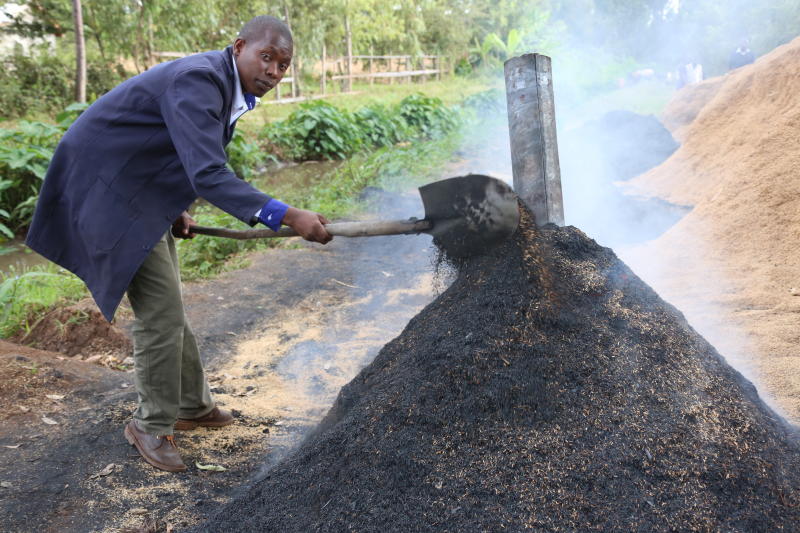Samuel Rigu piles rice husks onto a biomass waste converter in his industry in Mwea, Kirinyaga County on August 23, 2016.[Allan Mungai, Standard]
×
The Standard e-Paper
Kenya’s Boldest Voice

Samuel Rigu is coy about the secret potion he adds to his fertiliser, revealing only that the brown liquid is called "Safi Proprietary Enhancement Formula". He's less shy about the results.
At his processing plant in Mwea, central Kenya, Rigu has found a way of turning agricultural waste into an organic fertiliser that retails at less than half the price of its inorganic alternative.